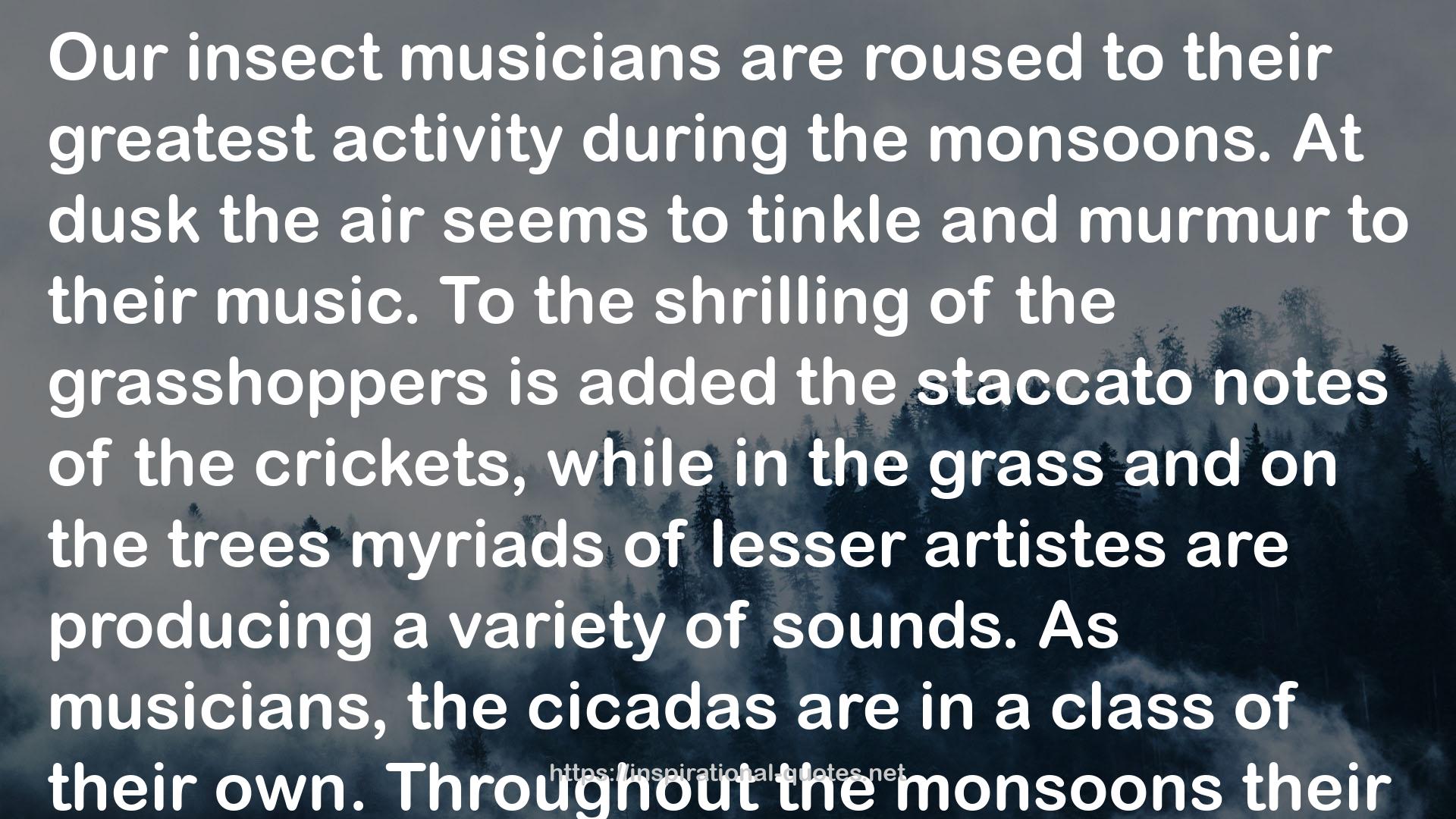" Our insect musicians are roused to their greatest activity during the monsoons. At dusk the air seems to tinkle and murmur to their music. To the shrilling of the grasshoppers is added the staccato notes of the crickets, while in the grass and on the trees myriads of lesser artistes are producing a variety of sounds. As musicians, the cicadas are in a class of their own. Throughout the monsoons their screaming chorus rings through the forest. A shower, far from dampening their ardour, only rouses them to a deafening crescendo of effort. As with most insect musicians, the males do the performing, the females remain silent. This moved one chauvinistic Greek poet to exclaim: ‘Happy the cicadas, for they have voiceless wives!’ To which I would respond by saying, ‘Pity the female cicadas, for they have singing husbands!’ Probably the most familiar and homely of insect singers are the crickets. I won’t attempt to go into detail on how the cricket produces its music, except to say that its louder notes are produced by a rapid vibration of the wings, the right wing usually working over the left, the edge of one acting on the file of the other to produce a shrill, long-sustained note, like a violinist gone mad. Cicadas, on the other hand, use their abdominal muscles to produce their sound. "
― Ruskin Bond , Landour Days: A Writer's Journal
